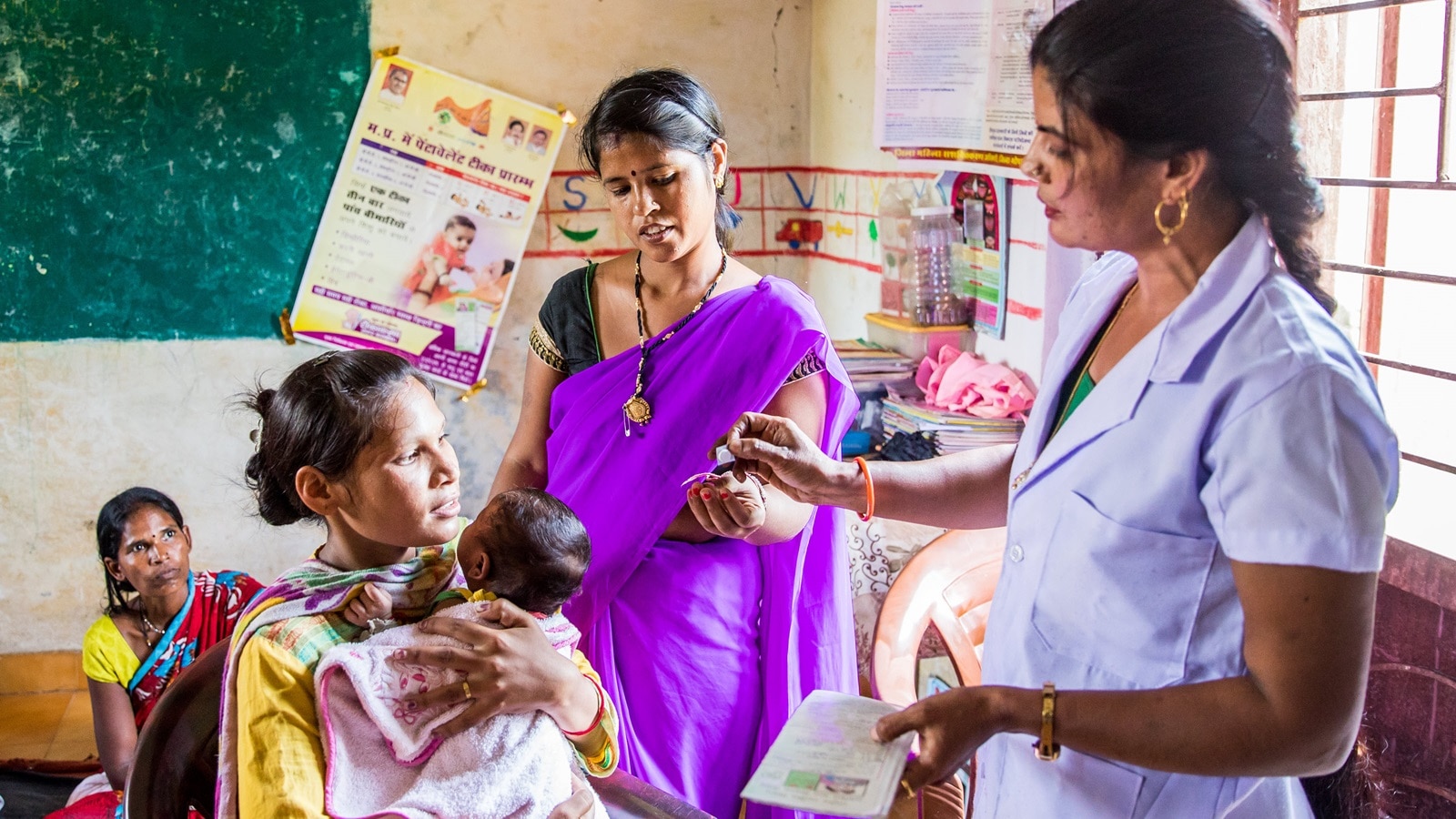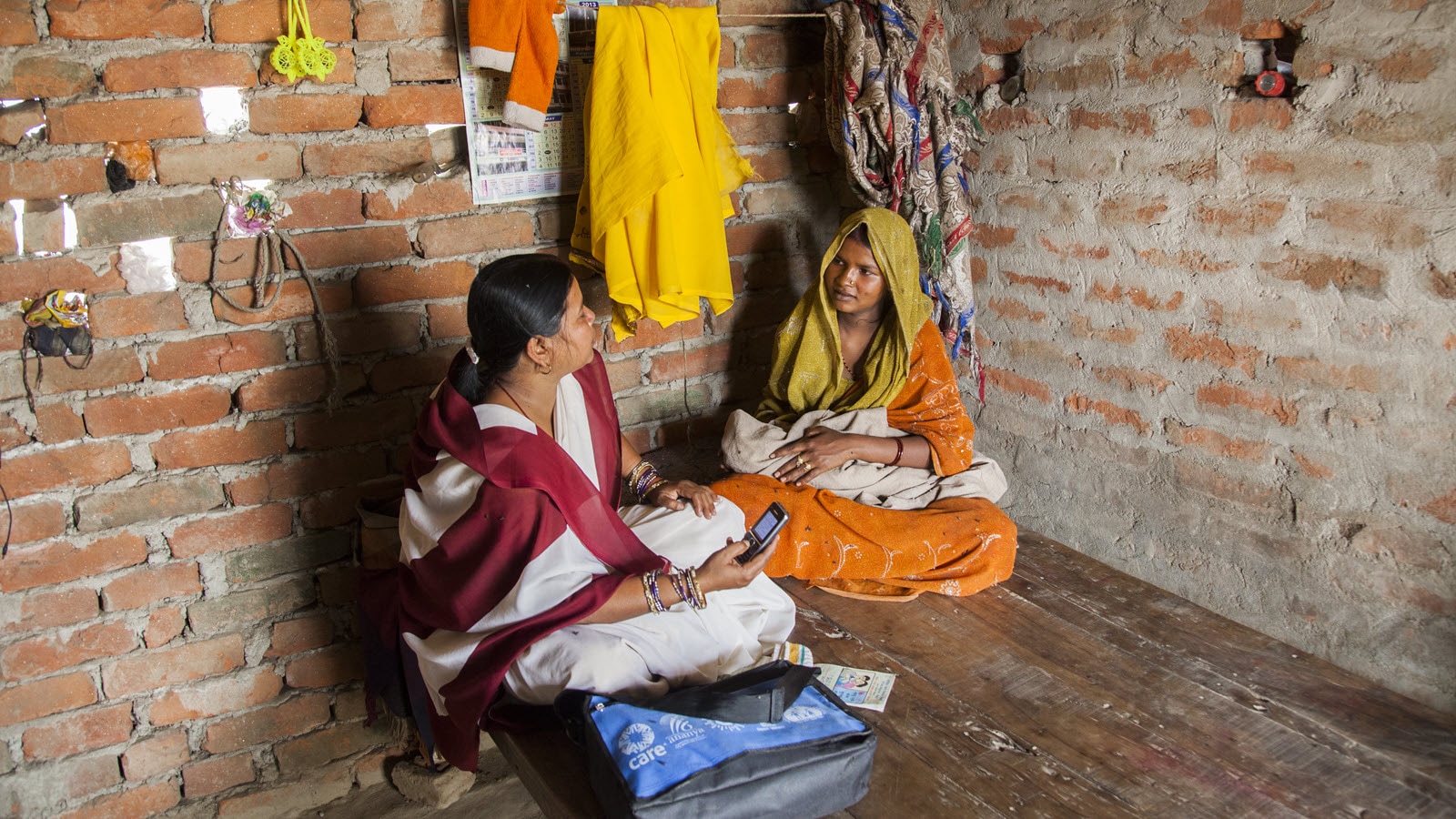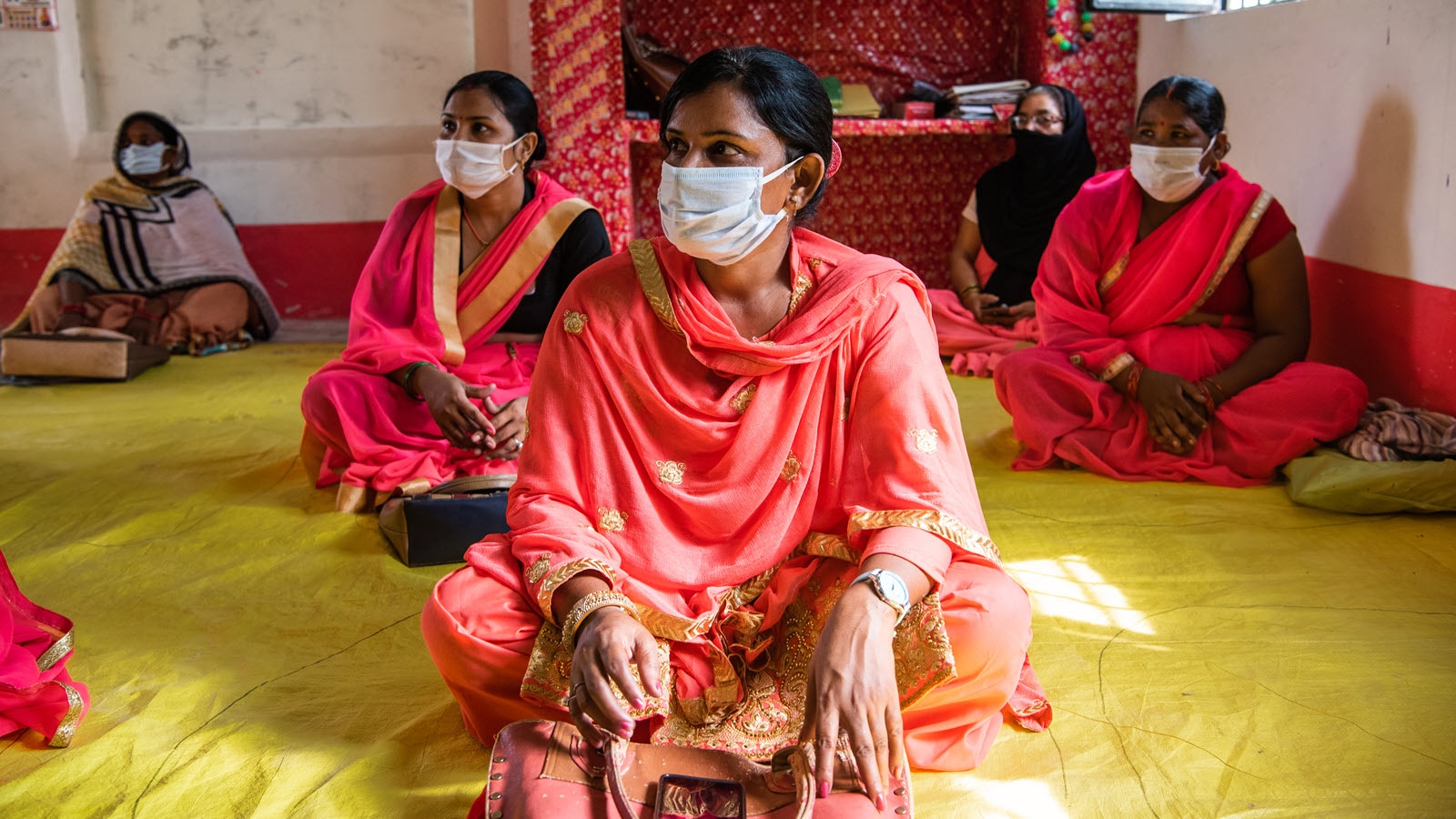At a glance
- India is investing significantly in health and development, with the goal of helping millions of people participate in the country’s growth opportunities and lift themselves out of poverty.
- We align all of our efforts with the objectives of the Indian government, including the country’s ambitious targets under the United Nations Sustainable Development Goals (SDGs).
- In addition to working with the central and state governments, we partner with community groups, nonprofit organizations, academic institutions, the private sector, and development organizations.
- Our areas of focus in health care include maternal and newborn health, nutrition, family planning, and the control of infectious diseases such as tuberculosis, lymphatic filariasis, and visceral leishmaniasis. We believe that spurring innovation is key to solving these and other persistent health challenges.
- We work with partners to help develop innovative solutions that improve the quality and coverage of services in priority states, particularly Bihar and Uttar Pradesh. We also work in Tamil Nadu, Andhra Pradesh, Odisha, and Maharashtra, where we support programs in sanitation, agricultural development, gender equality, and digital financial inclusion.
Overview
More than two decades ago, when Bill Gates and Melinda French Gates were both working at Microsoft, they came across a newspaper article about a highly contagious diarrhea-causing virus called rotavirus that was responsible for the deaths of hundreds of thousands of children each year in low-income countries. They wondered: How could they have not known about this devastating disease?
In higher-income countries, rotavirus is easily treated, and a vaccine is available. Stirred by this gross inequity in access to health care, Bill and Melinda resolved to devote themselves to addressing such issues, leading them to establish their foundation.
The foundation began working in India in 2003 with the launch of Avahan, an HIV prevention program that is estimated to have prevented 600,000 new infections. We also joined with other partners to support the Indian government in eliminating polio. This coordinated effort, which involved mobilizing 2.3 million volunteer vaccinators to reach 170 million children with repeated doses of oral polio vaccine, led to India being declared polio-free in 2014.
Our efforts in India focus on key issues that will affect the future of India’s most vulnerable communities: reproductive, maternal, newborn, and child health and nutrition; sanitation; agricultural development; gender equality, and digital financial inclusion. We have invested more in India than in any other country besides the United States.
In collaboration with India’s central and state governments and with a particular focus on Bihar and Uttar Pradesh, we work to develop innovative solutions that improve the quality and coverage of key services. Our data-driven approach allows us to determine what works and what doesn’t and to adjust our strategy and approach accordingly.
We have a Memorandum of Cooperation (MoC) with India's Ministry of Health and Family Welfare under which we provide technical, management, and program design support for key health initiatives. Under the MoC, the foundation supports the ministry's work to improve health outcomes, such as by reducing maternal and child mortality, improving nutrition services, and increasing immunization coverage. Collaborative efforts are being made to increase access to family planning measures among younger women and reduce the burden of specific infectious diseases, such as tuberculosis, visceral leishmaniasis, and lymphatic filariasis. The foundation also supports the government’s efforts to strengthen supply chains as well as the management of human resources for health.
Key states
Our priorities

We work to improve access to quality, affordable health care in India, with a particular focus on maternal and child health, immunization, family planning, nutrition, and neglected tropical diseases (including tuberculosis, lymphatic filariasis, and visceral leishmaniasis). We invest in innovative technologies and support the central and state governments in strengthening health systems.

We work towards realizing the country’s vision of financial inclusion by expanding access to digital financial services and products and improving outreach and efficiency so all Indians have an opportunity to participate in the formal financial sector.

India cannot address its burden of disease until access to safe sanitation is available to all. We work with the public and private sectors and across communities to work toward India’s goals of being open defecation free, improving fecal sludge management, and ensuring access to safe and sustainable sanitation solutions, especially for the urban poor and women.

We work to support and empower smallholder farmers across India—particularly women—so they can increase their incomes and enhance their livelihoods by improving their productivity and gain access to nutritious food for their families and communities.

We focus on women’s economic empowerment as a way to increase women's access to income and assets, expand their economic opportunities, and improve their quality of life.
Frequently asked questions
We operate in India as a branch office of a foreign organization, with the Permission of the Reserve Bank of India (RBI) under the Foreign Exchange Management Act (FEMA) of 2017. We comply with auditing and disclosure procedures mandated by the Government of India and the U.S. government, and our tax returns and consolidated financial statements are available on our website here.
Our foundation is a charitable trust under the laws of the State of Washington, USA, and a tax-exempt private foundation as described in sections 501(c)(3) and 509(a) of the U.S. Internal Revenue Code.
Our foundation is a charitable trust under the laws of the State of Washington, USA, and a tax-exempt private foundation as described in sections 501(c)(3) and 509(a) of the U.S. Internal Revenue Code.
We disburse all grants directly from our main office in Seattle, Washington. As a U.S.-based organization, we are not subject to India’s Foreign Contribution Regulation Act (FCRA) of 2010, which is enforced by the Ministry of Home Affairs; however, we confirm that our Indian grantees' FCRA registration is still active and they have the designated FCRA bank account before we release any payments to them.
We list all of our committed grants on our website here.
Our branch office in India operates with the permission of the Reserve Bank of India (RBI) under the Foreign Exchange Management Act (FEMA) of 2017. This branch office does not disburse grants on behalf of the foundation, nor does it receive grants from the foundation’s Seattle office. The approval it has under FEMA allows it to bring foreign exchange into India to meet its direct operating expenses.
Our foundation complies with all auditing and disclosure procedures mandated by the Government of India and the U.S. government, and our tax returns and consolidated financial statements are available on our website here.
Indian NGOs that receive foreign funds from our foundation are regulated by the Ministry of Home Affairs under the Foreign Contribution Regulation Act (FCRA) of 2010. Before we disburse funds to Indian grantees from our Seattle office, we confirm that they have the necessary FCRA approvals. We confirm that our Indian grantees' FCRA registration is still active and they have the designated FCRA bank account before we release any payments to them.
Our branch office in India does not receive any foreign contributions that are subject to FCRA.
Because our foundation is a U.S.-based organization and not an Indian grant recipient, we are not subject to the FCRA.
All of our work in India is aligned with the government’s objectives for improving the lives of its people, and we work closely with India’s central and state governments. Our other partners in this work include community groups, nonprofit organizations, academic institutions, the private sector, and development organizations. Our core work spans five sectors:
- Health
- Sanitation
- Agricultural development
- Gender equality
- Financial services for the poor
With a particular focus on Bihar and Uttar Pradesh, we fund the development of sustainable, high-impact solutions that improve the quality and coverage of key services. We also work in the states of Tamil Nadu, Andhra Pradesh, Odisha, and Maharashtra to support programs in sanitation, agricultural development, and digital financial inclusion.
Our work in India began in 2003 with the launch of an HIV prevention initiative called Avahan. We have since expanded our efforts to include other key health and development issues, including maternal and child health, nutrition, vaccines and immunization, family planning, financial services for the poor, sanitation, and communicable diseases.
All of our work in India supports the priorities of the central government and the governments of the states we work in. We offer them our expertise, global experience, and network of partnerships to support the development and dissemination of relevant, high-impact solutions. We also work closely with a range of private and public partner organizations across India to strengthen health systems.
More about our work in India
Our office in Delhi supports our work with India’s central and state governments, nonprofit organizations, community groups, academic institutions, the private sector, and development organizations to achieve our shared goals.
Read the latest stories, research, and news from across the foundation and subscribe to our weekly newsletter, The Optimist.



